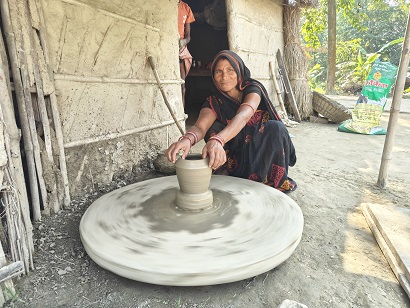Vast Investment Opportunities in Indian Micro-Finance Sector For UAE: MFIN CEO
- By 2027, MFIN anticipates the micro-financing loan portfolio in India to reach USD 80 billion, signalling ample opportunities for investors from UAE seeking both financial returns and social impact

May 14, 2024, Dubai, UAE: MFIN, the quasi-regulatory body (Self Regulatory Organisation) in the Indian micro-finance sector, has underscored the significant potential for investment in India’s micro-finance industry from the UAE market. With total micro-finance loan portfolio amounting to USD 50 billion and an outreach extending to 7.5 crore low-income women– a community often disempowered in society– India’s micro-finance sector has emerged as a pivotal force in fostering financial inclusion and empowering women in the country.
Highlighting the sector’s robust growth trajectory, Dr. Alok Misra, CEO, MFIN pointed out that the average loan amount stands at Rs 40,000, with around 75 per cent of India’s current population representing a viable customer segment for micro-finance. Moreover, with micro-finance directly contributing to nine Sustainable Development Goals out of the twelve, its significance as a vehicle for positive social change cannot be overstated.
The regulatory framework governing microfinance in India is primarily overseen by the Reserve Bank of India (RBI). The RBI released the harmonized guidelines for microfinance loans on 14th March 2022. The new guidelines ushered in a new era for the microfinance sector where a common regulatory framework was applicable to all REs of RBI. The regulations created a level playing field for all regulated entities in the microfinance space and that has also led to MFIN emerging as the unified body for microfinance in India. As of March 2024, MFIN has 51 NBFC-MFIs, 7 banks, 6 SFBs and 9 NBFCs as its members- entire spectrum active in microfinance.
Riding on the regulatory support for the sector, MFIN has also taken various steps to strengthen the sector. With support from RBI, it is conducting nearly 3000 financial literacy workshops across India, is launching a NatCat insurance product with support from ADB to assist clients in events like drought or flood, launching an online certification programme for field staff to build capacity and popularising digital solutions for repayment collection under an HSBC supported pan India project.
Talking about his visit to United Arab Emirates, Dr. Misra said, “We aim to educate investors in the UAE about the opportunities inherent in India, emphasizing the dual benefit of financial returns and social impact that investing in micro-finance offers.” He cited the following investment opportunities
- Equity Investment: Investing in established microfinance institutions (MFIs) in India can provide exposure to a growing sector. MFIs with strong governance, diversified portfolios, and robust risk management systems are particularly appealing.
- Debt Financing: Providing debt capital to MFIs can be lucrative due to the high demand for funding in the sector. This can be structured as senior debt, subordinated debt, or through structured finance instruments.
- Impact Investing: UAE investors focused on social impact can support MFIs that prioritize financial inclusion, women’s empowerment, and poverty alleviation.
- Greenfield Projects: Investing in new microfinance ventures or greenfield projects can tap into underserved regions or innovative business models.
The CEO, with over 30 years of professional experience in international development, rural finance, microfinance, inclusive finance and research at both policy and implementation level, further noted that global fund houses have already recognized the potential of the Indian micro-finance sector, with 85 per cent of equity coming from outside India. Notably, Abu Dhabi’s Sovereign fund has made substantial investments, reflecting the growing interest from the UAE.
“With micro-finance present in 724 out of 800 districts in India and witnessing a remarkable 24 per cent growth rate, the sector is poised for even greater expansion,” remarked the CEO. “By 2027, we anticipate the micro-finance loan portfolio in India to reach USD 80 billion, signalling ample opportunities for investors seeking both financial returns and social impact.”
Emphasizing the cultural affinity and geographical proximity between India and the UAE, the CEO expressed confidence in the UAE’s potential as a strategic partner for investments in the Indian micro-finance sector. “India’s socio-economic landscape presents a conducive environment for micro-finance investments, aligning with the values and objectives of investors in the UAE,” Dr. Alok added.